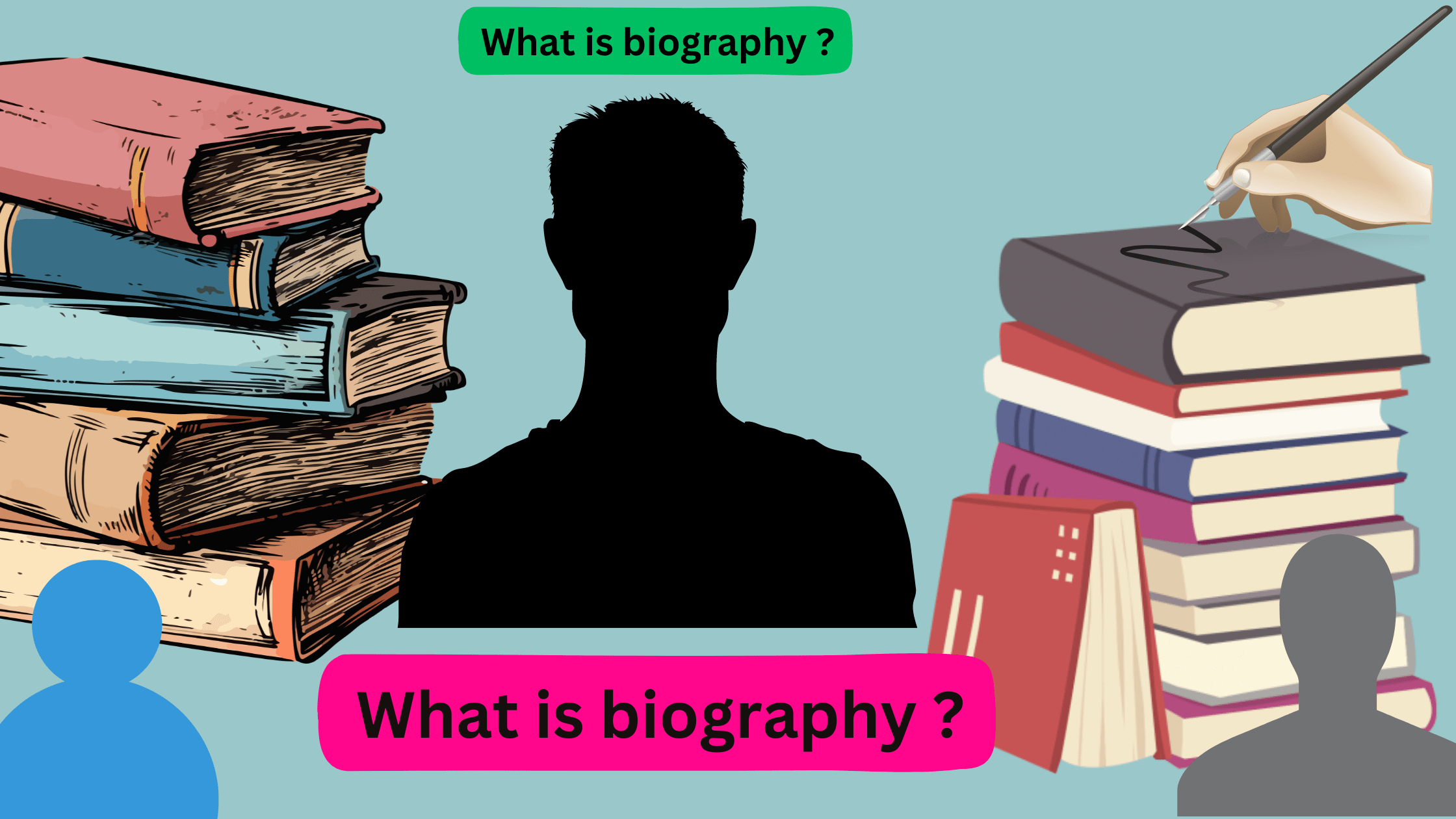Preserving History Through Biographies
In a world where the past is often overshadowed by the present, biographies serve as a powerful tool for preserving history. These written accounts provide a gateway to the lives and experiences of individuals who have shaped our world, offering a glimpse into their triumphs, struggles, and legacy. Through meticulous research and storytelling, biographers transport readers to different eras, offering a deeper understanding of our collective history.
By delving into the lives of notable figures, biographies shed light on the challenges they faced and the impact they made. Whether it’s uncovering lesser-known details about famous historical figures or highlighting the incredible achievements of unsung heroes, the genre of biography breathes life into the shadows of the past.
Through biographies, we not only gain insights into the lives of extraordinary individuals but also learn valuable lessons that we can apply to our own lives. These narratives inspire and motivate, guiding us to navigate our own unique paths with resilience and purpose.
From famous politicians and inventors to artists and activists, biographies offer a captivating window into the human experience. As readers, we have the privilege of reacquainting ourselves with the past, honoring those who have come before us, and carrying their stories forward.
Preserve history. Read a biography today.
Why biographies are important for preserving history
Biographies play a crucial role in preserving history by providing a personal and intimate perspective on the lives of individuals who have shaped the world around us. These written accounts offer a unique window into the past, allowing readers to gain a deeper understanding of the social, political, and cultural contexts that influenced the actions and decisions of historical figures.
Through biographies, we can uncover the human stories behind the events and movements that have defined our collective history. By exploring the motivations, struggles, and triumphs of these individuals, we gain a more nuanced and comprehensive understanding of the past, moving beyond the broad strokes of historical narratives. Biographies humanize history, making it more relatable and accessible to readers.
Moreover, biographies can shed light on the lesser-known or overlooked aspects of history, giving voice to individuals whose stories might have been marginalized or forgotten. By highlighting the contributions and experiences of diverse historical figures, biographies help to challenge and expand our traditional understanding of the past, fostering a more inclusive and representative historical record.
The impact of biographies on historical research
Biographies have a profound impact on historical research, serving as invaluable sources of primary and secondary information. The meticulous research and detailed accounts provided in biographies often uncover new insights and perspectives that can reshape our understanding of historical events and figures.
Biographers, through their extensive investigations, can uncover previously unknown documents, letters, diaries, and other primary sources that offer a firsthand glimpse into the lives and experiences of their subjects. These primary sources are essential for historians and researchers, as they provide a direct window into the past, allowing them to analyze and interpret historical events with greater nuance and accuracy.
Furthermore, biographies often draw upon a wide range of secondary sources, such as scholarly articles, books, and archival materials, to construct a comprehensive and well-rounded portrait of their subjects. By synthesizing these diverse sources, biographers can offer fresh interpretations and challenge existing historical narratives, sparking new avenues of research and debate.
Famous biographies that have contributed to preserving history
Throughout history, numerous biographies have made significant contributions to the preservation and understanding of the past. These works have not only captivated readers but have also shaped the way we perceive and engage with historical figures and events.
One of the most renowned biographies in history is “The Life of Samuel Johnson” by James Boswell, published in 1791. This groundbreaking work provided an intimate and detailed account of the life of the influential 18th-century literary critic and lexicographer, Samuel Johnson.
Boswell’s meticulous documentation of Johnson’s conversations, habits, and personal struggles offered readers a vivid and multifaceted portrait of the man, which has since become a cornerstone of English literature and a valuable resource for historians.
Another iconic biography is “Autobiography of Malcolm X” by Alex Haley, published in 1965. This powerful narrative chronicles the life and transformation of the influential civil rights leader, offering readers a firsthand account of his experiences and the social and political upheaval of the era.
By amplifying the voice of a marginalized figure, the “Autobiography of Malcolm X” has played a crucial role in preserving the legacy of a pivotal historical figure and the broader civil rights movement.
How to write a compelling biography for historical figures
Crafting a compelling biography for a historical figure requires a delicate balance of thorough research, thoughtful interpretation, and engaging storytelling. The task of the biographer is to breathe life into the past, to transform the dry facts and dates into a captivating narrative that resonates with readers.
One of the key elements of a successful historical biography is the ability to contextualize the subject’s life within the broader social, political, and cultural landscape of their time. By situating the historical figure within the larger historical framework, biographers can help readers understand the motivations, challenges, and significance of their subject’s actions and contributions.
Effective biographers also strive to present a multidimensional portrait of their subject, exploring not only their public achievements but also their personal struggles, relationships, and inner thoughts. This approach helps to humanize the historical figure, making them more relatable and accessible to readers. By delving into the complexities and nuances of their subject’s life, biographers can offer a more nuanced and compelling account of the past.
Tips for conducting research for historical biographies
Crafting a comprehensive and well-researched historical biography requires meticulous attention to detail and a commitment to uncovering a wide range of primary and secondary sources. The process of conducting research for a historical biography can be both rewarding and challenging, as biographers navigate the often fragmented and dispersed nature of historical records.
One of the crucial first steps in the research process is to identify and access relevant primary sources, such as personal letters, diaries, government documents, and other archival materials. These firsthand accounts can provide invaluable insights into the thoughts, experiences, and motivations of the historical figure, offering a direct window into the past.
In addition to primary sources, biographers must also engage with a diverse array of secondary sources, including scholarly books, articles, and other biographies. By synthesizing these materials, biographers can gain a deeper understanding of the broader historical context and uncover new interpretations or perspectives on their subject.
Effective biographers also recognize the importance of cross-referencing and verifying information from multiple sources to ensure the accuracy and reliability of their findings. This meticulous approach to research helps to build a robust and credible narrative, ensuring that the biography stands up to scrutiny and contributes to the ongoing dialogue surrounding historical figures and events.
Challenges and ethical considerations in writing historical biographies
Crafting a historical biography is not without its challenges and ethical considerations. Biographers must navigate a delicate balance between preserving the integrity of their subject’s legacy and presenting a truthful, well-rounded account of their life.
One of the primary challenges faced by biographers is the limited or fragmented nature of historical records. Many individuals from the past did not leave behind extensive personal documents or archives, making it difficult for biographers to piece together a comprehensive understanding of their lives. This can lead to gaps or ambiguities in the narrative, requiring biographers to make informed inferences and interpretations based on the available evidence.
Furthermore, biographers must grapple with the ethical dilemma of how to handle sensitive or controversial aspects of their subject’s life. Decisions regarding the inclusion or omission of certain details, the portrayal of personal relationships, and the interpretation of historical events can have significant implications for the subject’s legacy and the public’s perception of them.
Biographers must exercise great care and sensitivity in navigating these ethical considerations, striving to present a truthful and balanced account while respecting the privacy and dignity of their subject.
Another ethical concern in writing historical biographies is the potential for bias or subjectivity. Biographers, like all researchers, bring their own perspectives, experiences, and agendas to their work, which can influence the way they interpret and present the life of their subject. Recognizing and acknowledging these biases is crucial, as it allows readers to approach the biography with a critical eye and consider alternative perspectives or interpretations.
The role of technology in preserving and sharing biographical information
In the digital age, technology has played a transformative role in the preservation and dissemination of biographical information. The advent of online archives, digital libraries, and multimedia platforms has revolutionized the way we access and engage with historical biographies.
One of the most significant ways technology has impacted the preservation of biographical information is through the digitization of primary sources. By converting physical documents, letters, and photographs into digital formats, researchers and biographers can now access a wealth of historical materials from the comfort of their own homes or offices. This has greatly expanded the reach and accessibility of these invaluable resources, enabling a wider audience to engage with and learn from the lives of historical figures.
Furthermore, the rise of online databases and digital archives has made it easier for biographers to discover and cross-reference a diverse range of sources, enhancing the depth and accuracy of their research. Platforms such as Ancestry.com, FamilySearch, and various university and library archives have become indispensable tools for biographers, allowing them to uncover previously hidden or dispersed biographical information.
The digital landscape has also facilitated the sharing and dissemination of biographical content. Through online publishing platforms, social media, and multimedia formats, biographies can reach a global audience, exposing readers to a diverse array of historical figures and their stories. This has the potential to inspire and educate a new generation of readers, fostering a deeper appreciation for the past and its enduring relevance.
Resources and organizations dedicated to preserving history through biographies
In the pursuit of preserving history through biographies, there are numerous organizations and resources dedicated to this important endeavor. These entities play a vital role in supporting the research, publication, and dissemination of biographical works, ensuring that the stories of historical figures continue to be told and celebrated.
One such organization is the Biography Society, an international community of biographers, scholars, and enthusiasts who are committed to the art and craft of biographical writing. The Biography Society organizes conferences, workshops, and publications that promote excellence in biographical research and storytelling, providing a platform for biographers to share their work and connect with like-minded individuals.
Another valuable resource is the National Biography Award, an annual prize that recognizes outstanding biographies and memoirs. This prestigious award not only celebrates the achievements of biographers but also draws attention to the importance of preserving history through the written word. By honoring exemplary works, the National Biography Award encourages and inspires other writers to contribute to the rich tapestry of biographical literature.
At the institutional level, universities and libraries around the world have dedicated departments and collections focused on preserving and promoting biographical research. These entities often house extensive archives, rare documents, and specialized collections related to the lives of historical figures, making them invaluable resources for biographers and researchers.
The importance of preserving history through biographies
In the ever-evolving landscape of historical scholarship, biographies remain a vital tool for preserving and sharing the stories of the past. These written accounts offer a unique and compelling way to engage with history, humanizing the individuals who have shaped our world and inspiring us to reflect on the enduring legacies they have left behind.
By delving into the lives of historical figures, biographies provide a deeper understanding of the social, political, and cultural contexts that have influenced the course of history. They shed light on the triumphs and struggles, the motivations and decisions, that have defined the human experience throughout the ages.
As we navigate the complexities of the present, the study of biographies can serve as a powerful reminder of the resilience, ingenuity, and determination of those who have come before us. Their stories can inspire us to confront our own challenges with courage, to seek out new perspectives, and to contribute to the ongoing tapestry of human history.
Ultimately, the preservation of history through biographies is not just an academic pursuit, but a vital endeavor that enriches our collective understanding of the world and our place within it. By engaging with these captivating narratives, we honor the lives of those who have left an indelible mark on our past, and we pave the way for a future where the lessons of history continue to guide and inspire us.


